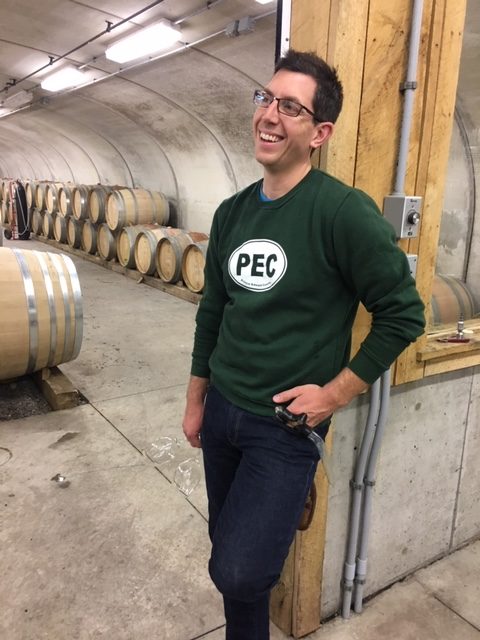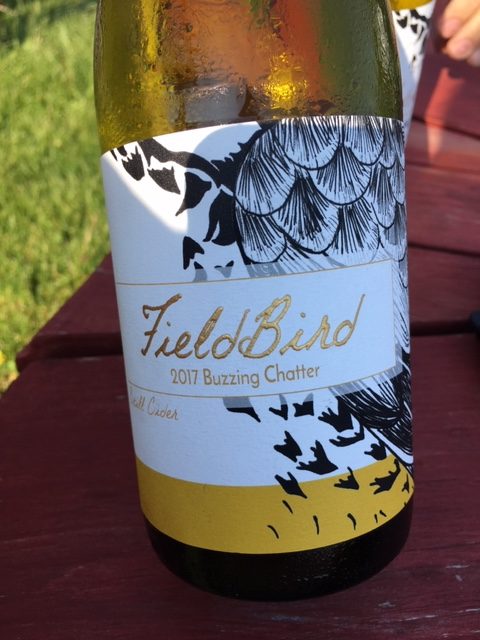Using Oak Barrels in Cidermaking – What do you want to know?
Ryan Monkman of FieldBird Cider based in Prince Edward County, Ontario Canada presented an extended seminar on Oak Barrels at CiderCon 2019 in Chicago.

The workshop description:
It’s like a Choose-Your-Own Adventure book…but with booze. A dozen mini-talks on oak. The crowd decides what to cover and what to scrap. We’ll open with an introduction on barrels then throw it to the horde. A vote at the end of each mini-talk will determine what we explore next. We’ll finish when the clock stops – leaving time for Q&A.
During the presentation Ryan had 4 ciders to taste that he with different degrees of oak applied ~ Some in barrels, some with oak chips with different levels of toasting.
Previous Episodes with Ryan Monkman
In this Cider Chat
- Do you lose the oak overtures in carbonated cider?
- How is the barrel made and why it matters?
- And how does the barrel’s design and wood used affect the cider
- Topping up your barrel with lees and cider
- What to do with the lees.
- Ryan keeps the yeast lees around.
- He uses less as part of the top up of the barrel
- You can also top it off with gas.
“Stirring is my favorite part” says Ryan
- Use whatever you can to keep the lees back into suspension
- To stir or not to stir?
- Not everyone does stir.
- Lees are reductive and can reduce fruit aroma in a cider
- Does Ryan exclusively use French oak barrels. – No
- He has one American Barrel (named “Ria” and filled with Perry!! and plans on getting more American barrels and also a Canadian barrels too.
- How often to stir barrels
- Ryan stirs 2x/day during initial fermentation
- Then twice a week
- Long term twice a month or every two weeks to top off the barrel
- Ryan leaves the cider on lees until it is ready to bottle
- The toasting of a barrel impacts the toasting of the barrel.
- The lighter it is toasted the lighter the oak overtures.
- more toasted more flavor
Ryan notes that, “With oak you can build complexity!”

- Using oak chips
- Question is – when do I want to use them?
- Which oak to use – not all oak is alike.
- What % of a French oak tree can be used to make barrels? 20%
- The remaining 80% of the tree is used to make railroad ties in France
- The oak planks are dried outside for 2-4 years
- Coopers can use a reed between pieces of wooden staves
- They use to use wheat flour – but no one use wheat flour anymore
- Because only 20% of the tree can be used is one of the reasons why French oak barrels are so expensive.
- Reconditioned barrels? Worth it?
- Different oak barrels
- Whiskey barrels are more loose grained
- Chardonnay barrels in CA are tighter
- The main wood of choice is white oak
- Main variety of French oak used is “Quercus robur” (Limousin oak) which has a high levels of tannin and low levels of flavor
- What do you want to say with your cider
What to do? Do a whole bunch of different things.
- Any barrel is better than no barrel
- Bourbon barrels – coarse grain – heavy grain into the fire zone – aromatic but not a the structure side – to get vanillin note it requires time.
- Wine barrel – tight grain – light to medium toast – french or European oak
Contact for FieldBird Cider
- Website: https://fieldbirdcider.com/
- Buy FieldBird Cider
- Facebook: https://www.facebook.com/fieldbird.cider/
- Follow on Instagram
- @fieldbird.cider
- @ryanmonkman



